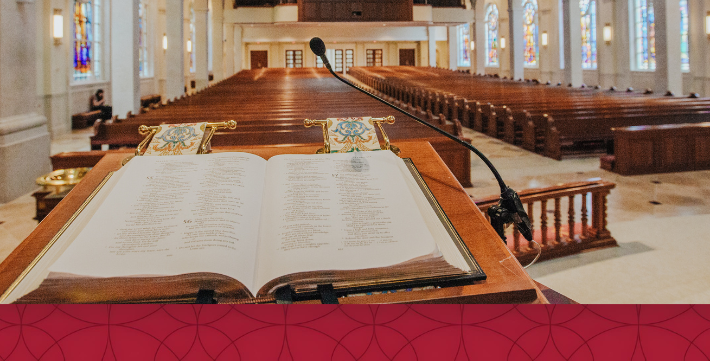Commentary on Malachi 3:1-4
Who can endure the day of his coming?1
The prophet Malachi raises a disturbing question for all who proclaim God’s arrival with joyful expectation. Are you ready? Do you know what it means? Who can endure it? In the prophetic tradition, the day of the Lord anticipates God’s victorious kingship and a period of righteous judgment. Consequently, the prophets describe the day of the Lord with dramatic language that is both uplifting and fearsome. Depending on the context, it is the promise of deliverance or the threat of judgment. In fact, it is usually both elements at once. In either case, it is the might of God’s power that both comforts and disturbs.
Malachi proclaims that a holy messenger is on the way, and this announcement brings with it both a promise and a word of warning. It is ambiguous whether the messenger in this text is a prophet, an angelic being, or God’s very self. Three different names are mentioned in verse 1—“my messenger” (Hebrew: mal’aki), “the angel/messenger of the covenant,” and “YHWH of Hosts.” Commentators through the centuries have debated whether this refers to three distinct figures, one divine and one human figure, or three different terms for one figure. Some have connected the reference to “my messenger” to the figure for whom the book is named. The term Malachi means “my messenger,” and it may refer either to the proper name of a prophet or to the prophetic function as the bearer of messages.
Regardless of the messenger, the message is clear: The Lord of Hosts is coming. The term “hosts” is a military term. It can be translated as “YHWH, he creates armies” (see also 1 Samuel 17:45). Its use in the postexilic prophetic literature makes a claim about God’s triumph over foreign powers. The restoration of Israel is a signal that YHWH’s might is far superior to the Persian emperor and his armies.
Even as the text uses martial imagery, the day that YHWH of Hosts brings is not a military conquest. Rather, it sparks a period of purification and refinement. It is a necessary process to prepare the people for the worship of God. The book of Malachi is addressed to postexilic Jerusalem after the rebuilding of the temple (circa 516/515 BCE). It speaks to a priestly audience that lacks some confidence in the power and sanctity of the pre-exilic temple rituals (Malachi 1:12–13; 2:13–14) and certainly lacks reverence for their correct observance (Malachi 1:6–8). Yet the prophet does not disparage the Levitical priesthood completely, even as he offers strident criticism of their corruption and lack of obedience. Rather, the messenger of the covenant envisions the renewal of the priesthood that will restore the office to its historic holiness, providing for proper and faithful worship.
This renewal comes through testing and cleansing. It is the refining fire that brings precious metal to light, and it is the washing with strong detergent. The Hebrew term for “soap” (borît) sounds quite similar to the word for “covenant” (berît). Ironically, it is the soap that restores to covenant faithfulness, as the covenant is in some measure a metric of obedience. The purpose of divine judgment is not to punish but to prepare the way of the Lord. It is to bring restoration and renewed life. It is to train the people in obedience to the covenant so that they may offer reverent praise.
Malachi’s proclamation may strike a discordant tone with our Advent expectations. Our preparations are often informed by pastoral images of sweet baby Jesus surrounded by choirs of angels and placid sheep around the manger. Jesus brings serenity, peace on earth, goodwill to all.
But while we can affirm that the coming of Jesus Christ, the prince of peace, is good news of great joy for all people, this does not mean that Christ’s presence demands nothing of us or leaves us unchanged. Like a refiner’s fire and cleansing soap, the arrival of Christ in our midst calls us to reverent obedience and faithful praise. The good news is indeed that we will not be left unchanged but will be reformed and refined to become like Christ.
The prophet raises a challenge for each of us. As we proclaim Christ’s coming with Advent expectation, the promise of Christ’s arrival should prompt us to self-reflection and even make us uncomfortable. Are we ready?
Notes
- Commentary previously published on this website for December 6, 2015.



December 8, 2024